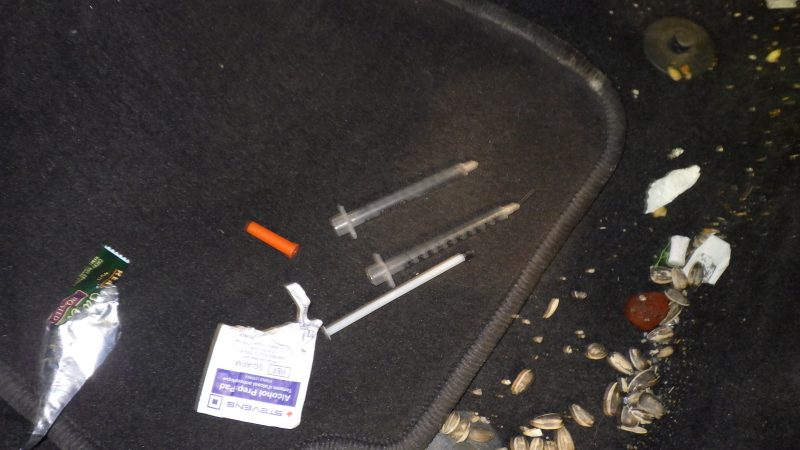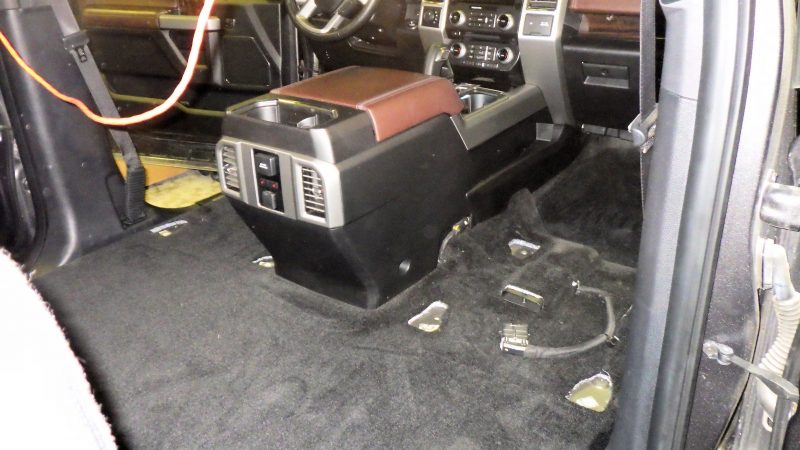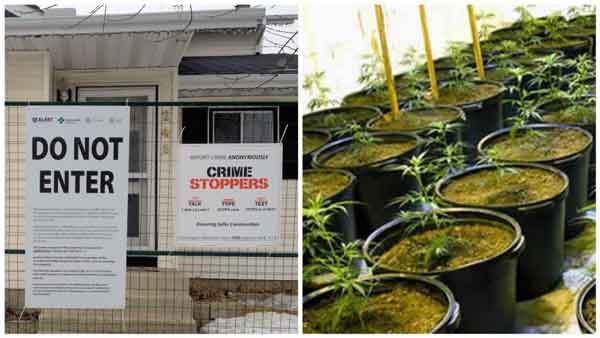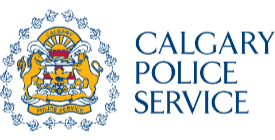Stolen vehicles in Calgary are a very real concern. In 2020 alone, there were over 5200 vehicle thefts or attempted thefts. Behind those figures are innocent people who are now victims of a truck, van, or car theft. They are frustrated by having their lives turned upside down and dealing with so many unknowns.
How long will the police investigation take? Will the car be found? Will it be drivable? Was my truck used in a crime? Are there drugs in my car now? Do I have to be concerned about fentanyl or meth drug residue?
 In some cases, stolen vehicles are never recovered. A portion of those recovered have damages beyond repair. Thankfully, many vehicles are found and returned without damage.
In some cases, stolen vehicles are never recovered. A portion of those recovered have damages beyond repair. Thankfully, many vehicles are found and returned without damage.
You may think the nightmare ends with going to the impound lot to pick up your car. Life will finally return to normal. Unfortunately, getting your vehicle back only marks the next phase of recovery. Being back on the road safely can take a while longer.
Many vehicle thefts are committed by drug dealers or addicts. They use your vehicle to commit other crimes to acquire and do drugs. This is where a myriad of potential visible and hidden risks could have contaminated your vehicle. What you don’t know and can’t see can be extremely harmful to your health. Drug testing your vehicle limits exposure to hazardous materials and ensures the safety of everyone who comes into contact with the vehicle.
4 Critical Steps Prior To Vehicle Drug Testing
1. Do not accept your vehicle “as is”.
Assume your recovered stolen vehicle is contaminated. Even if the car or truck looks clean, do not go inside, or drive the vehicle.
2. Request a police inspection
Your truck will be towed to the impound lot once it is located. Always get the police to take a more in-depth look at your vehicle to see if there are any suspicious items or evidence left behind. Firearms, dangerous items, narcotics, and personal identification could be found in the car and lead police to the thieves.
3. Contact your insurance company
With opening a claim, anticipate your insurance company will recommend having the vehicle taken to a body shop. The body shop will inspect the truck for repairs and ensure there is no hidden damage.
This is a good time to discuss your auto policy coverage regarding theft. Share your concern about possible drug use and specifically ask if drug testing is included. In Alberta, insurance companies are not required by law to do drug testing so responses can vary by company. Your insurance company may or may not be interested in performing the vehicle drug testing depending on the circumstances and evidence surrounding the stolen vehicle.
4. Call to make arrangements
Whether you or your insurance company decides to go ahead and request drug testing, the vehicle needs to be moved to a location where it can be tested. If you are responsible for towing the vehicle from the impound lot, this is a perfect time to call Mayken™ to discuss whether the vehicle will be tested on-site or at Mayken™’s shop. If the insurance company is handling the vehicle, feel free to contact us as well to let us know what is happening.
Why Bother Drug Testing Your Recovered Vehicle?
The short answer is – you have no idea where your vehicle has been, who was in it and what they did in it. Risks to you and your passenger’s safety are both seen and unseen. Types of hazards that may be encountered include:
Syringes and sharps
Syringes are the most common tool for drug users and are easily spotted if left on a seat, dashboard, or console. Imagine yourself or family members being pricked when searching for something under the seat, on the floor mat, or in an organizer pouch. The needle could carry drug residue or bloodborne diseases such as AIDS, HIV, or hepatitis.
Drug residue
Removing syringes and sharps isn’t enough protection. Drug residue can be found in the form of powder, liquids, crushed pills, or smoke. It is left behind on the upholstery, dashboard, visors, and potentially everywhere in the car. Simply touching a surface with residue can be enough for the drug to seep into someone’s skin.
Blood and bodily fluids
Syringes aren’t the only exposure to bloodborne risks. Accidental cuts handling needles and sharp objects can happen easily. Blood can splatter anywhere. Vomit, urine, and feces are commonly found in theft recovered vehicles as well.
Fingerprint powder
If your vehicle is a crime scene while stolen, there’s a good chance the police will want to dust the car for fingerprints. Other chemicals that are difficult to remove like tear gas and fire extinguisher powder can be involved, but less often.
What Happens During Vehicle Drug Testing?
Once the testing request has been received, a hazmat team will be deployed there to carry out the testing.
Why use hazmat cleaners? For most circumstances, they are best equipped to perform drug testing services on a vehicle in comparison to a car detailing service. Hazmat cleaners are trained and certified to interact with hazardous materials and follow proper safety precautions and procedures. Hazmat specialists use all the necessary personal protective equipment (PPE) while testing. They are trained to use special tools and testing equipment that limits the exposure risk to the substances and materials inside the recovered vehicle.
A complete and thorough drug testing process includes:
- looking for weapons, which can have drug residue as well
- sharp objects like needles or razor blades
- bodily fluids
- leftover drugs including fentanyl and methamphetamine that may have become embedded in fabrics and crevices
- drug paraphernalia
- drug residue
If a significant amount of illicit substances is found, usually exceeding 200 nanograms (ng), the substance type will be identified. When the results are known, the owner and their insurance company are notified.

Your Vehicle Drug Testing Came Back Positive. Now What?
Anticipate significant amounts of drug residue will be found. Don’t be alarmed. Hazmat specialists can decontaminate your vehicle to remove all traces of the hazardous substances. Your vehicle is returned to a safe, clean condition again.
The vehicle decontamination process typically takes 1-3 days depending on:
- extent of disassembling vehicle parts needed to access all effected areas
- the substances detected during the initial inspection
- extent of cleaning required
- reassembly of the vehicle parts
A complete vehicle decontamination happens in 3 stages:
- Removing all items from the vehicle including weapons, sharps, drug paraphernalia, junk, and personal items
- Sanitizing to neutralize and eliminate the illicit drugs, any bloodborne pathogens, bodily fluids, and other risk hazards
- Cleaning using extensive rigorous procedures to guarantee there are no traces left behind
Not only is the decontamination process essential for removing dangerous items, sanitizing and deep cleaning remove any leftover hidden drug residue that can affect you. This is the best detailing your vehicle will ever receive
Now that your vehicle is safe to enter, the body shop can access damages and the insurance adjuster can move your claim forward.
Even if you’re sure your vehicle looks fine, get an expert hazmat opinion to double-check. As the vehicle owner, peace of mind and the safety of you and your passengers is priceless.
Request drug testing today and a technician will be testing your vehicle within 12-36 hours.






















